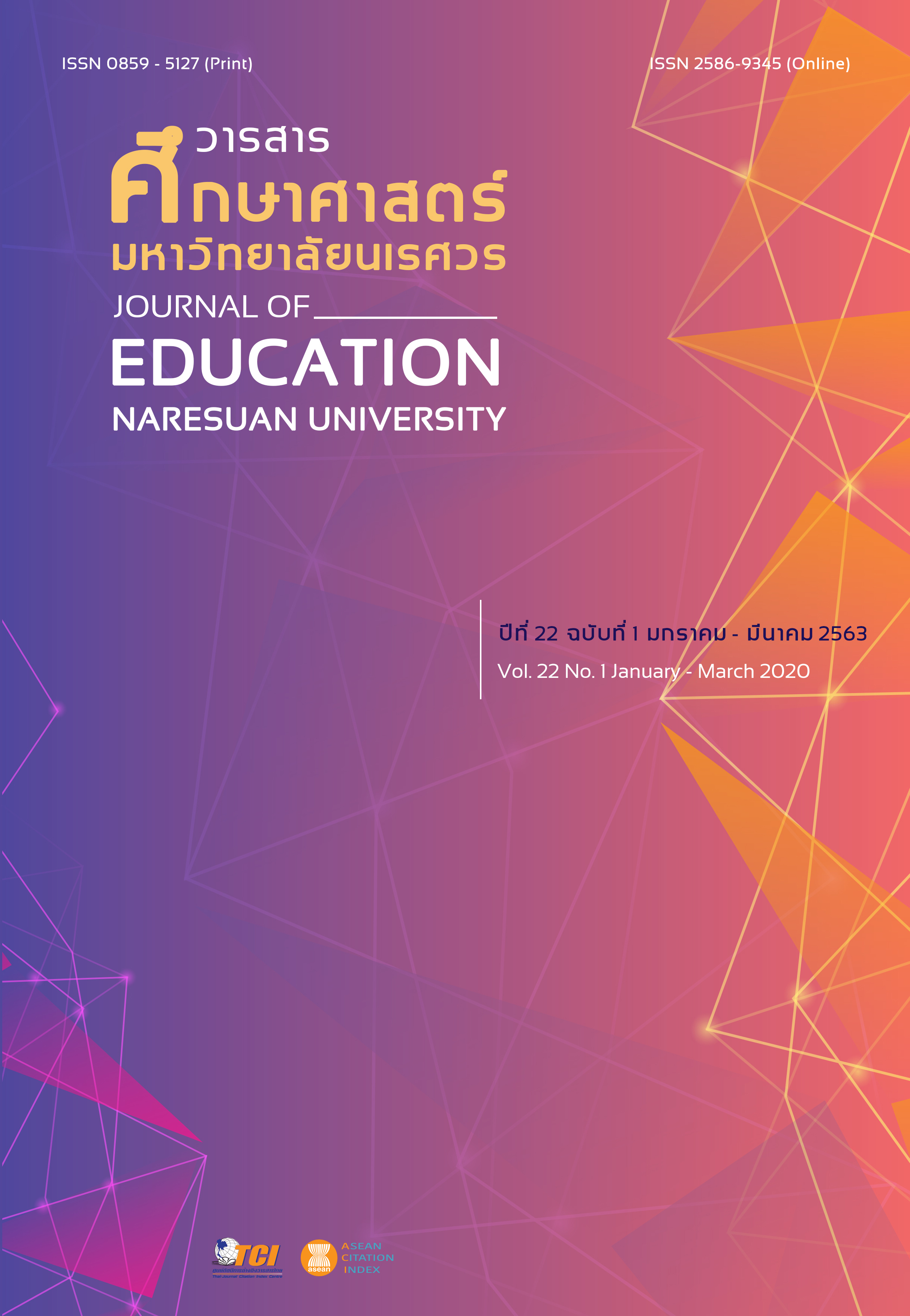PERSPECTIVES ON CURRICULUM DEVELOPMENT THROUGH THE NATIONAL SCHEME OF EDUCATION B.E. 2560 - 2579
Main Article Content
Abstract
The National Scheme of Education B.E. 2560 - 2579 is the nation framework and direction of development. An importance of putting the policies into practice is developing an appropriate curriculum should consist with current contexts, solve problems and meet social needs. The curriculum based on the National Scheme of Education B.E. 2560 - 2579 emphasis on integrated knowledge. Designing to help students prepare their life in the real world. Focus on lifelong education. Learn to construct knowledge. The students improve their skills and positive attitudes, have a confidence and self-respect. Be flexible and aware of the environment and be able to use knowledge creatively.
Article Details
The owner of the article does not copy or violate any of its copyright. If any copyright infringement occurs or prosecution, in any case, the Editorial Board is not involved in all the rights to the owner of the article to be performed.
References
Bhanthumnavin, D. (2007). Research synthesis on moral and ethic in Thailand and Aboard. Bangkok: Moral Promotion Center (Public Organization). [in Thai]
Chandransu, T. (2018). Strategy of education development for civic education B.E. 2553-2561. Journal of Thai Education, 7(70), 15-26. [in Thai]
Chittradub, S. (2014). “Learning beyond Text” sustainable blueprint in history-civic education subject. Retrieved from https://www.thairath.co.th/content/432136 [in Thai]
Department of Skills Development. (2015). A survey of employee needed by employer and new organization in 2014. Retrieved from https://dsd.job.thai.com/ [in Thai]
Egmond, V. (2011). Sustainability: The search for the integral worldview. Futures, 43(8), 853-867.
Information Center, Rajanukul Institute. (2017). Survey in IQ EQ situation of children in Thailand. Retrieved from https://rajanukul.go.th/new/index.php [in Thai]
Magoodin, N. (2011). Comparison of competition Performances in Science Technology and Innovation in ASEAN+6. Retrieved from https://www.sti.or.th/uploads/article_pdf [in Thai]
Mezirow, J. (2003). Transformative learning as discourse. Journal of transformative Education, 1(1), 58-63.
OECD. (2016). PISA 2015 Results (Volume I): Excellence and Equity in Education. Paris: OECD Publishing,
Office of Civil Service Commission. (2016). Sufficient economic philosophy and application [E-book] Retrieved from https://www.ocsc.go.th/sites/default/files/pdf [in Thai]
Office of the Education Council, Ministry of Education. (2017A). The National Scheme of Education B.E. 2560-2579. Bangkok: Prikwran Graphic. [in Thai]
Office of the Education Council, Ministry of Education. (2017B). Research and development model of curriculum and instruction development through Thailand qualification framework. Bangkok: Prigwhan Graphic. [in Thai]
Office of the National Economics and Social Development Board (2017). Potential of Thai citizen for Thai future. Bangkok: Office of the National Economics and Social Development Board. [in Thai]
Onthanee, A., & Wattanathon, A. (2006). Constructivist: New paradigm in environmental education. Journal of Education Naresuan University, 8(2), 103-113. [in Thai]
Pilanthananond, N. (1999). Role of value clarification in education. Bangkok: Chulalongkorn University. [in Thai]
Pronrungroj, C. (2014). Challenge, value and good. Bangkok: Office of National Education Standards and Quality Assessment. [in Thai]
Samakoses, V. (2011, 3 March). Education for citizenship. Matichon, p. 10. [in Thai]
Setian, S. Y. (1990). Effects of values clarification methodology on self-concept of Selected group of second generation Armenian American women. Dissertation Abstracts International, 51(6), 245-247.
Suksawat, S., & Namsomboon, M. (2017). The development of patriotism religion and monarchy values using values clarification process of Matthayomsuksa 5 students. Veridian E-Journal, Silpakorn University, 10(2), 1040-1059 [in Thai]
Taba, H. (1962). Curriculum development: Theory and practice. New York: Harcourt, Brace and World.
Thailand development Research Institute. (2013). Report of basic education reform’s strategies on responsibility. Retrieved from https://tdri.or.th/wp-content/uploads/2014/06/wb103.pdf [in Thai]
Tongaht, C. (2012). Curriculum theory: The development of the conceptual framework. Retrieved from https://languageinstruction.wordpress.com
Wongpiromsarn, Y. (2016, 15 October). Serious crisis. Matichon, p. 10. [in Thai]


